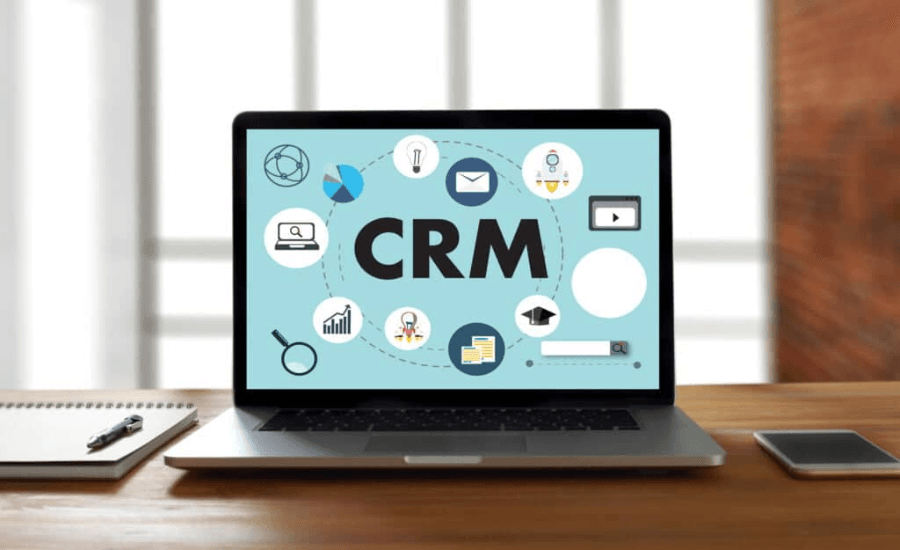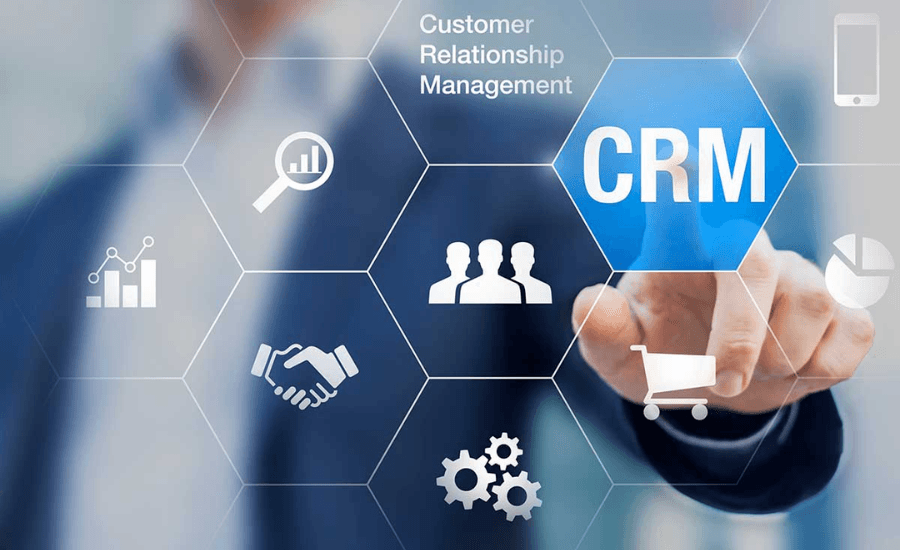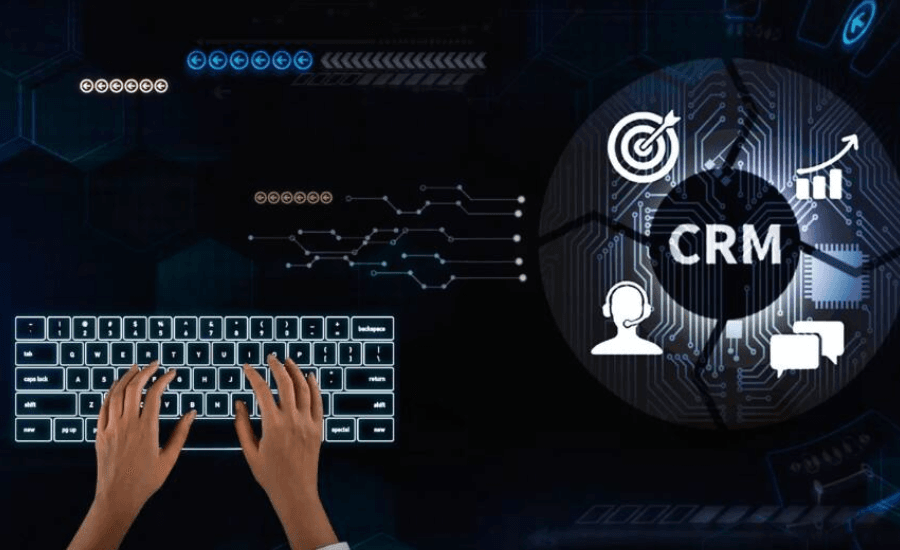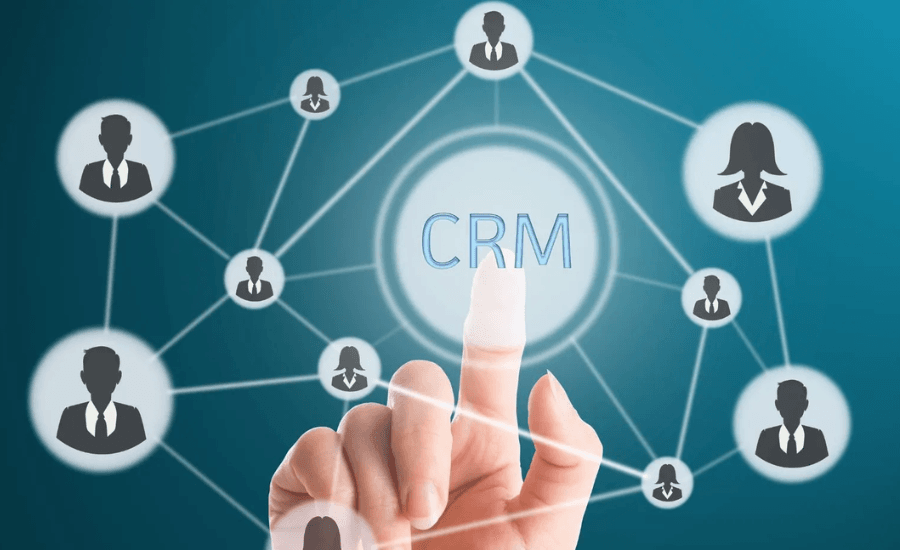Welcome to Mountainise! Today, we’re exploring the transformative capabilities of Customer Relationship Management (CRM) software. This innovative tool revolutionizes the way businesses manage and nurture relationships with leads and clients. Say goodbye to the disorder of spreadsheets and disjointed databases ; unlocking-the-power-of-crm-software v systems consolidate your operations, automate routine tasks, and enhance your efficiency, allowing you to focus on delivering exceptional experiences to your customers.
What Is CRM?

Customer Relationship Management (CRM) refers to a collection of strategies, methodologies, and technologies that organizations use to manage and analyze customer interactions throughout the entire lifecycle. The main aim of unlocking-the-power-of-crm-software is to improve customer service, enhance customer satisfaction, and ultimately drive sales growth.
The Importance of CRM
Organizations that prioritize CRM can expect to build stronger relationships with their customers, leading to increased loyalty and repeat business. A well-implemented CRM system helps businesses understand their customers better, anticipate their needs, and respond effectively to their concerns.
Key Components of CRM
unlocking-the-power-of-crm-software typically encompass several key components that work together to create a holistic approach to managing customer relationships:
- Data Collection: CRM systems gather information from various sources, including:
- Websites: Tracking customer interactions on company websites, including visits, clicks, and form submissions.
- Phone Calls: Logging details from phone conversations, ensuring a complete history of customer interactions.
- Live Chats: Capturing real-time conversations between customers and support agents for future reference.
- Social Media: Monitoring social media platforms to engage with customers and gather feedback.
- Customer Profiles: CRM systems create comprehensive customer profiles that include:
- Personal Information: Basic details like names, addresses, and contact information.
- Purchase Histories: Records of previous purchases, allowing businesses to identify trends and preferences.
- Preferences: Insights into customer preferences, such as communication methods and product interests.
Benefits of CRM

Implementing a CRM system can yield numerous benefits for organizations, including:
- Enhanced Communication: Centralized customer data allows team members across departments to access the same information, improving collaboration and communication.
- Improved Customer Service: With a complete view of customer interactions, support teams can address inquiries and issues more efficiently, leading to a better customer experience.
- Increased Sales: By streamlining the sales process and providing valuable insights, CRM tools help sales teams close deals more effectively and increase revenue.
- Better Customer Retention: Understanding customer needs and preferences helps organizations tailor their offerings, enhancing customer satisfaction and loyalty.
How CRM Works
CRM systems operate through several interconnected processes that facilitate effective customer management:
- Data Centralization: All customer-related information is stored in a single database, allowing easy access and analysis.
- Interaction Tracking: CRM tools monitor and log every interaction with customers, whether through email, phone, or in-person meetings. This creates a comprehensive history of engagement.
- Analysis and Reporting: CRM systems offer analytical tools that help businesses interpret customer data, identify trends, and generate reports. This information is critical for informed decision-making.
- Automation: Many CRM systems include automation features to handle repetitive tasks, such as sending follow-up emails or scheduling appointments. This increases efficiency and reduces the potential for human error.
The Role of Technology in CRM
Modern CRM systems leverage advanced technologies to enhance their capabilities:
- Artificial Intelligence (AI): AI-driven CRM systems can analyze large datasets to provide predictive insights, enabling businesses to anticipate customer needs and optimize their strategies.
- Mobile Access: Many CRM solutions offer mobile applications, allowing team members to access customer information and manage interactions on the go.
- Integration with Other Tools: CRM systems can integrate with various software applications, including email marketing tools, accounting software, and e-commerce platforms, creating a seamless workflow across business functions.
Types of CRM Software

CRM software comes in different forms, each tailored to meet specific business requirements. Here are the main types:
- Operational CRM: This type streamlines business processes by automating sales, marketing, and service tasks. Designed to generate leads and convert them into contacts, operational CRMs capture essential information to facilitate smoother transactions. Examples include Salesforce and HubSpot CRM.
- Analytical CRM: These systems focus on analyzing customer data to inform decision-making. By understanding customer behavior and market trends, analytical CRMs enhance strategic planning. Notable examples include Zoho Analytics and Microsoft Dynamics 365.
- Collaborative CRM: Also referred to as strategic CRMs, these platforms share customer information across different departments, such as sales, marketing, and support. This ensures that all customer-facing teams have access to the same data, fostering collaboration and enhancing service quality. Examples include Slack and Pipedrive.
Selecting the Best CRM Software
Choosing the right CRM software can be a daunting task, given the myriad of options available today. To simplify your decision-making process, here are some highly regarded CRM platforms:
- HubSpot CRM: Known for its user-friendly interface and robust features, HubSpot CRM is an excellent choice for small to medium-sized businesses, offering tools for sales, marketing, and customer support.
- Salesforce: A global leader in CRM solutions, Salesforce provides extensive customization options and powerful integrations, making it suitable for businesses of all sizes and industries.
- Zoho CRM: This affordable and versatile option offers a wide range of features, automation, analytics, and AI-driven insights, making it ideal for companies seeking a cost-effective CRM solution.
- Eleads CRM: Tailored specifically for the automotive industry, Eleads CRM provides specialized tools for sales, marketing, and customer service, making it an excellent choice for car dealerships.
- Pipedrive: Designed with sales teams in mind, Pipedrive features a visual pipeline for managing leads and deals effectively, making it ideal for organizations with established sales processes.
Implementing CRM Successfully

To ensure a successful CRM implementation, careful planning and execution are crucial. Here are the essential steps to follow:
- Define Your Objectives: Clearly articulate what you aim to achieve with your CRM system, whether it’s enhancing customer support, increasing sales, or improving marketing efforts.
- Select the Right CRM: Choose a CRM solution that aligns with your business objectives and needs. Consider aspects like functionality, ease of use, scalability, and budget.
- Plan Your Implementation: Create a detailed implementation plan outlining timelines, responsibilities, and milestones. Involve relevant departments in the planning process to ensure a smooth rollout.
- Train Your Team: Provide thorough training to your team to maximize the software’s benefits and promote user adoption.
- Migrate Data Carefully: Ensure a smooth transition by meticulously migrating existing customer data into the new CRM system, verifying its accuracy and completeness.
- Test the System: Conduct comprehensive testing of the CRM system before full deployment to identify and address any potential issues, including feature testing and workflow validation.
- Monitor and Optimize: After implementation, regularly assess the CRM system’s performance and gather user feedback.
Key Facts About CRM Software
- Market Growth: The global CRM software market is projected to grow from $58 billion in 2021 to over $128 billion by 2028, reflecting an increasing investment by companies in customer relationship technologies.
- User Adoption: Approximately 91% of businesses with 11 or more employees use CRM systems, indicating the widespread adoption of these tools across various industries.
- Improved Sales: Businesses that utilize CRM software can expect to see sales increase by 29% on average. This improvement is attributed to better lead management and streamlined sales processes.
- Enhanced Customer Retention: Companies using CRM systems have reported a 27% increase in customer retention rates, as CRM tools help businesses understand and meet customer needs more effectively.
- Time Savings: CRM systems can save sales teams up to 40% of their time by automating repetitive tasks, such as data entry and follow-up emails, allowing more time for meaningful customer interactions.
- Data-Driven Insights: Over 74% of marketers believe that using customer data in CRM improves their decision-making processes, leading to more effective marketing campaigns and strategies.
- Customization Capabilities: Many CRM platforms offer extensive customization options, allowing businesses to tailor the system to their unique workflows, preferences, and reporting requirements.
Frequently Asked Questions (FAQs)
Q: What is CRM software, and how does it benefit my business?
A: CRM software is a tool that helps businesses manage customer relationships and interactions throughout the customer lifecycle. It benefits businesses by improving customer service, enhancing communication, increasing sales, and fostering customer loyalty.
Q: What types of businesses can benefit from CRM software?
A: CRM software is versatile and can benefit businesses of all sizes and industries. Whether you operate a small local business, a large corporation, or anything in between, CRM solutions can help streamline processes and improve customer engagement.
Q: How can CRM software improve customer relationships?
A: CRM software centralizes customer information, allowing businesses to understand their customers better. This enables personalized communication, timely responses, and tailored services, all of which contribute to stronger customer relationships and increased satisfaction.
Q: Is CRM software easy to use?
A: Most modern CRM systems are designed with user-friendliness in mind. However, the ease of use can vary by platform. It’s essential to choose a CRM that aligns with your team’s skills and workflows to ensure smooth adoption.
Q: Can CRM systems integrate with other software?
A: Yes, many CRM solutions offer integration capabilities with various software applications, such as email marketing tools, accounting systems, and e-commerce platforms. This integration facilitates a seamless workflow across different business functions.
Q: What is the cost of CRM software?
A: The cost of CRM software can vary widely based on the features, scalability, and vendor. Some CRM systems offer free versions or tiered pricing based on user numbers or features, while others may require a monthly subscription fee.
Conclusion
In conclusion, Customer Relationship Management (CRM) software serves as a crucial tool for businesses seeking to enhance their customer engagement and drive growth. By understanding the different types of CRM solutions and their unique benefits, organizations can select the right platform to meet their needs. The implementation of a CRM system can lead to improved customer relationships, streamlined operations, and ultimately, greater profitability. With options like HubSpot CRM, Salesforce, Zoho CRM, Eleads CRM, and Pipedrive available, businesses have the opportunity to leverage technology to foster deeper connections with their customers and achieve exceptional success.
Keep an eye on this: App For Down



